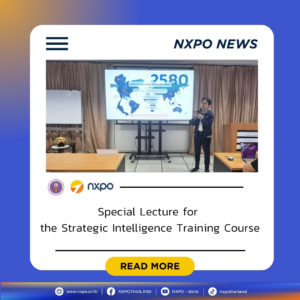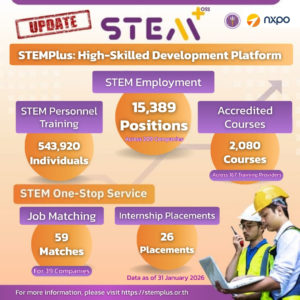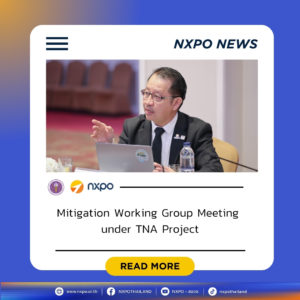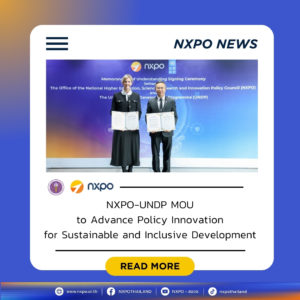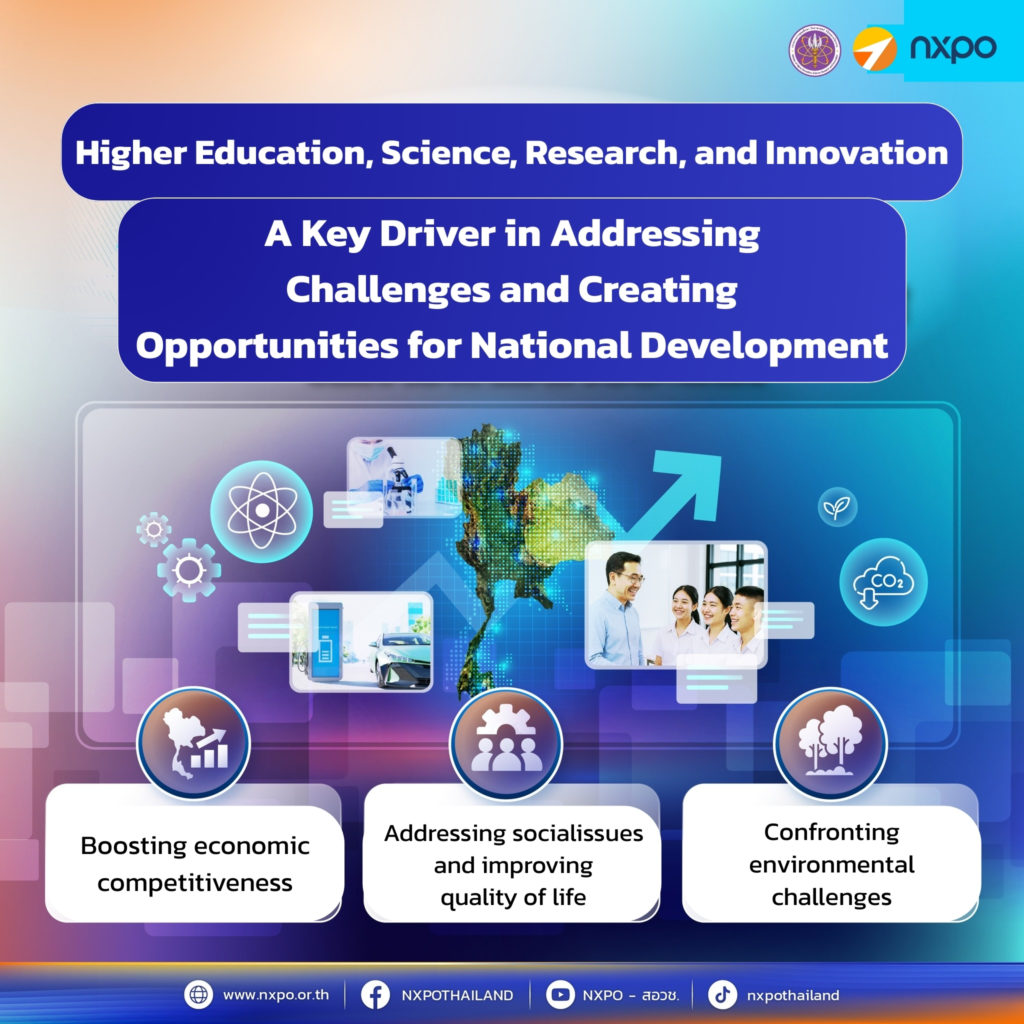
Higher education, science, research, and innovation are critical enablers for Thailand, helping the nation confront pressing challenges while unlocking new opportunities for sustainable development. Their impact spans across economic, social, and environmental dimensions, as outlined below.
- Boosting economic competitiveness
- Value creation for products and services: Enhancing Thailand’s traditional products to achieve higher value, such as transforming rice into cosmeceutical products. Rice extracts, for example, have increased in value by 5–10 times.
- Transformative technologies and innovations: Robotics, AI, and automation technologies drive efficiency in the manufacturing sector.
- Supporting emerging industries: New sectors such as the bioeconomy, electric vehicles, and digital technologies are creating new markets and high-quality job opportunities.
- Addressing social issues and improving quality of life
- Responding to an aging society: Innovations in elderly care, assistive technologies, and smart health systems help reduce healthcare costs. For example, the A-MED Telehealth platform, developed by the National Science and Technology Development Agency (NSTDA) in collaboration with the National Health Security Office (NHSO), was deployed during COVID-19 to manage patients under home and community isolation. It enabled remote patient monitoring, eased the workload of healthcare professionals, and improved patient care.
- Reducing inequality: Accessible technologies, distance learning, and digital platforms extend opportunities to remote areas. For instance, an online education platform ensures continuous learning for children and youth nationwide.
- Developing a skilled workforce: Education reform emphasizes future skills, lifelong learning, and stronger collaboration between academia and industry. Initiatives include sandbox curricula co-created with industry to train advanced researchers and specialized professionals.
- Confronting environmental challenges
- Clean energy innovation: Renewable energy advancements, such as floating solar and next-generation biodiesel, help reduce greenhouse gas emissions more effectively than traditional energy sources.
- Sustainable resource management: Smart water management and precision agriculture technologies can cut water use by 30–40%.
- Circular economy: Innovations include waste-to-energy conversion, high-quality recycled materials, and eco-friendly manufacturing processes.
These examples highlight how higher education, science, research, and innovation serves both as a mechanism for crisis response and a catalyst for opportunity creation. Investment in this domain is therefore an investment in Thailand’s future—one that generates long-term economic and social returns.
As the national policy agency for higher education, science, research, and innovation, NXPO continues to foster collaboration across sectors to strengthen the national system. This system is vital to driving social and environmental progress and steering the nation toward high-income status by 2037, in alignment with the National Strategy.
NXPO pursues this mission under three strategic frameworks:
- Driving the national economy beyond the middle-income trap
- Advancing digital transformation to enhance competitiveness
- Achieving carbon neutrality to build a sustainable low-carbon society

